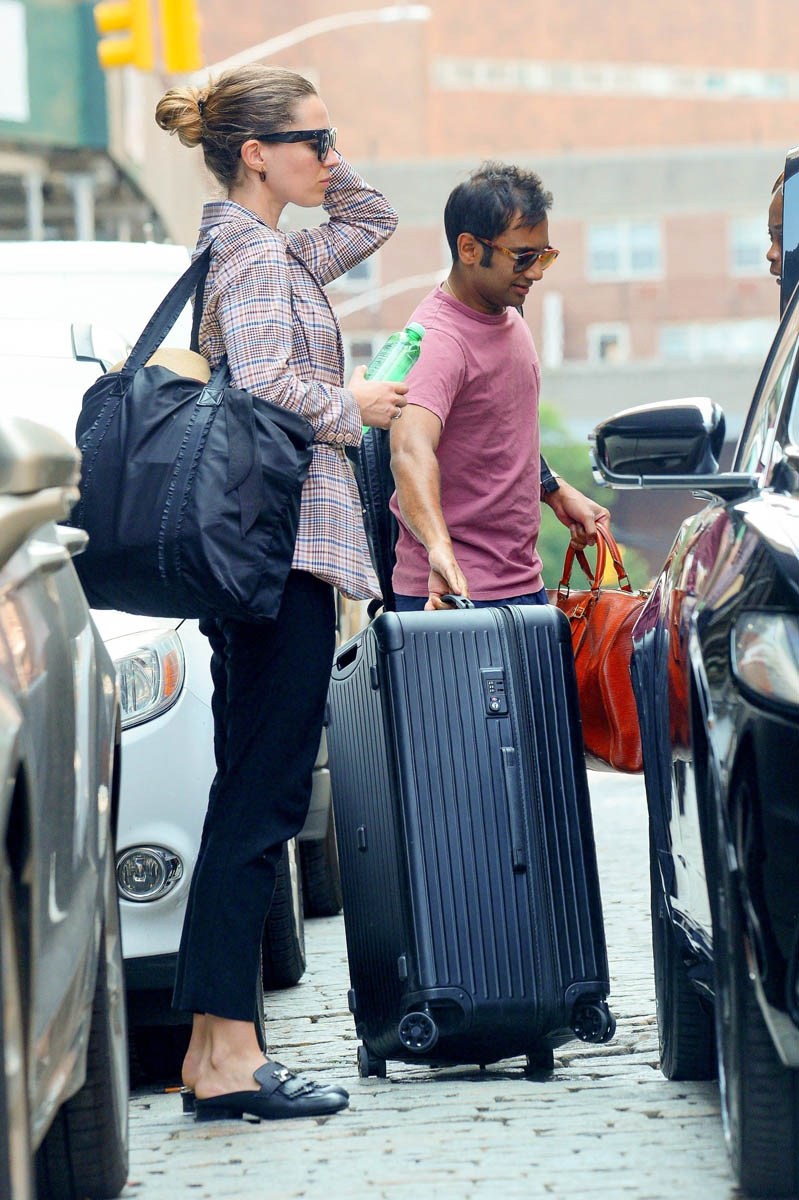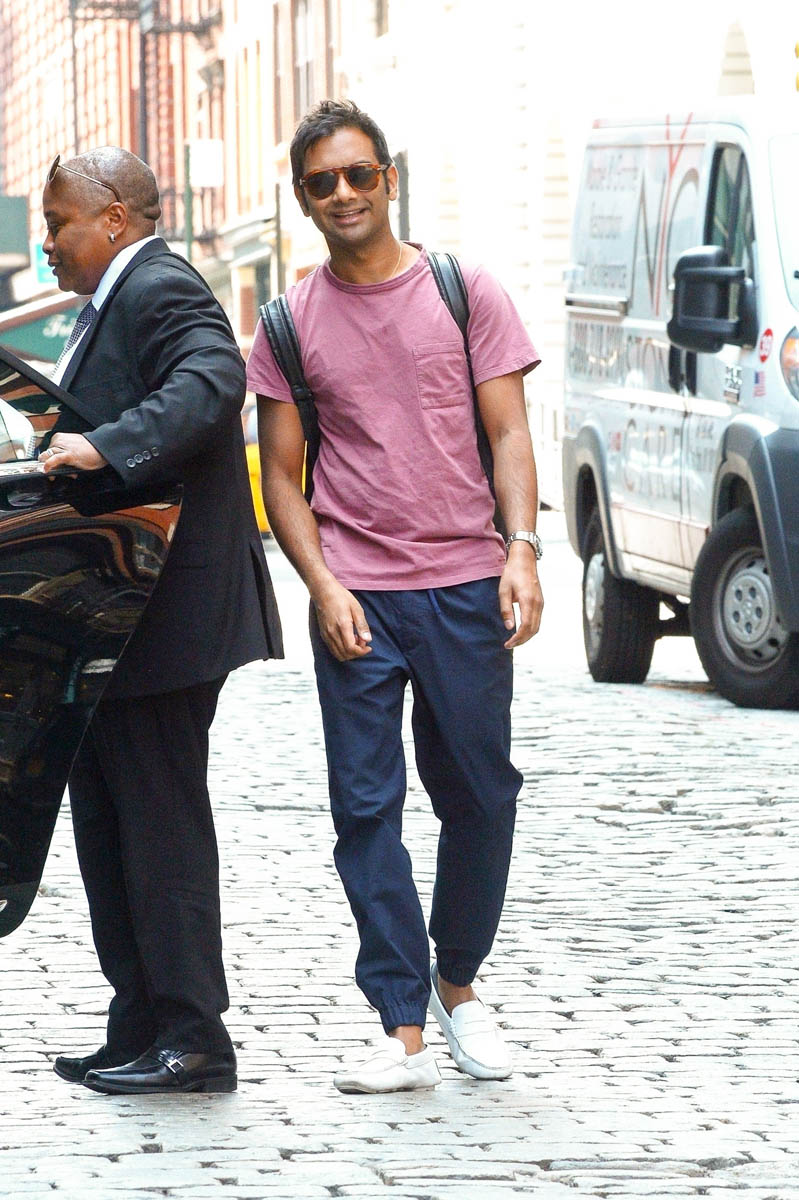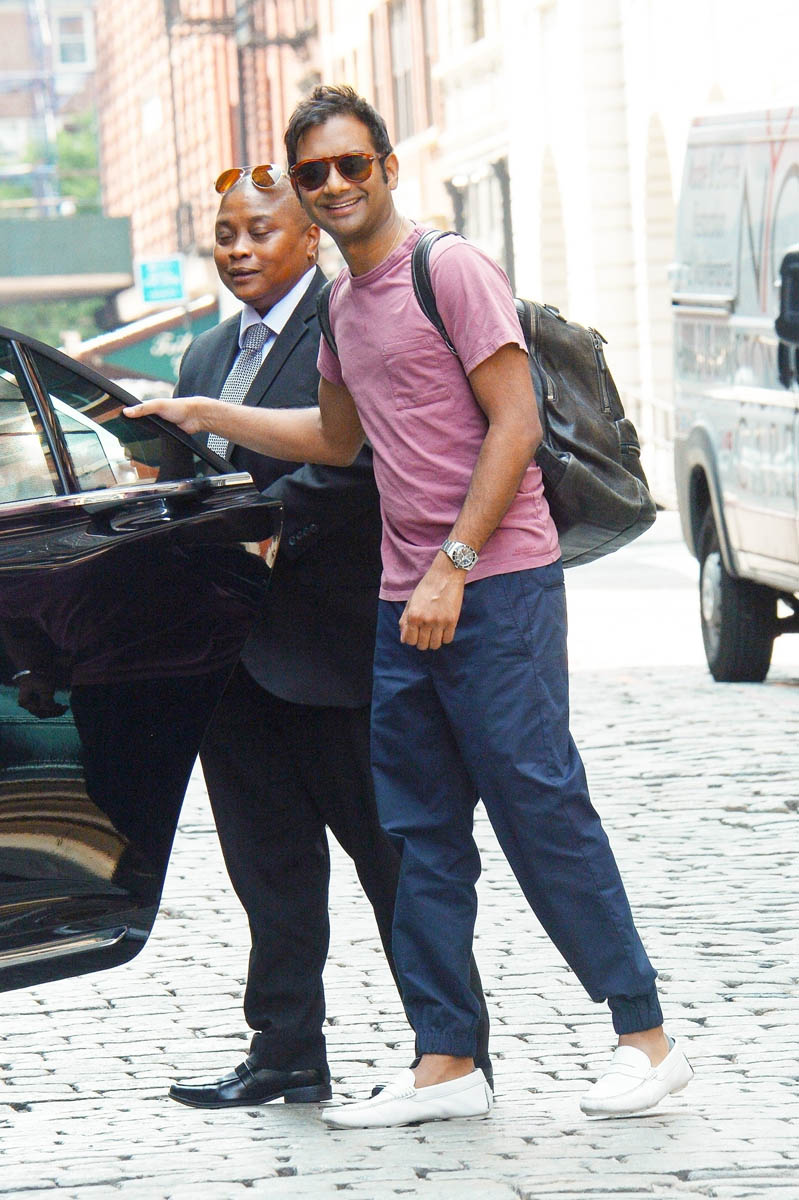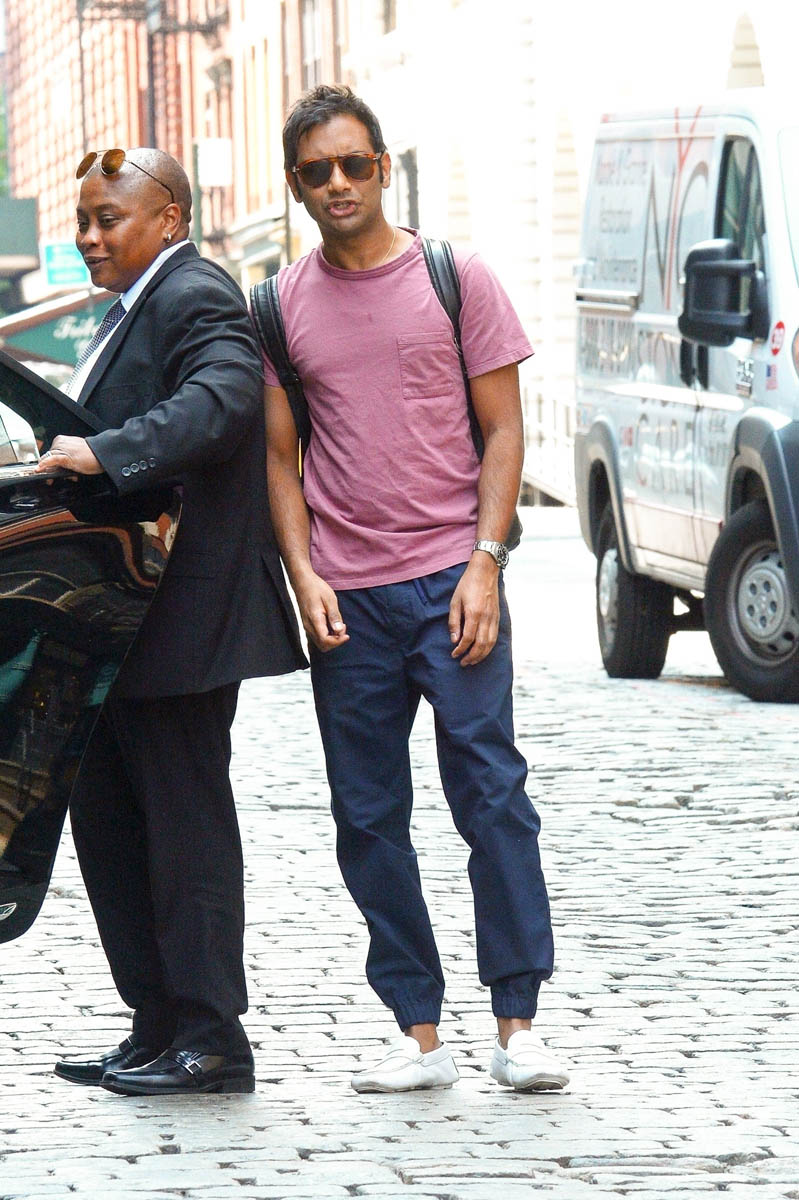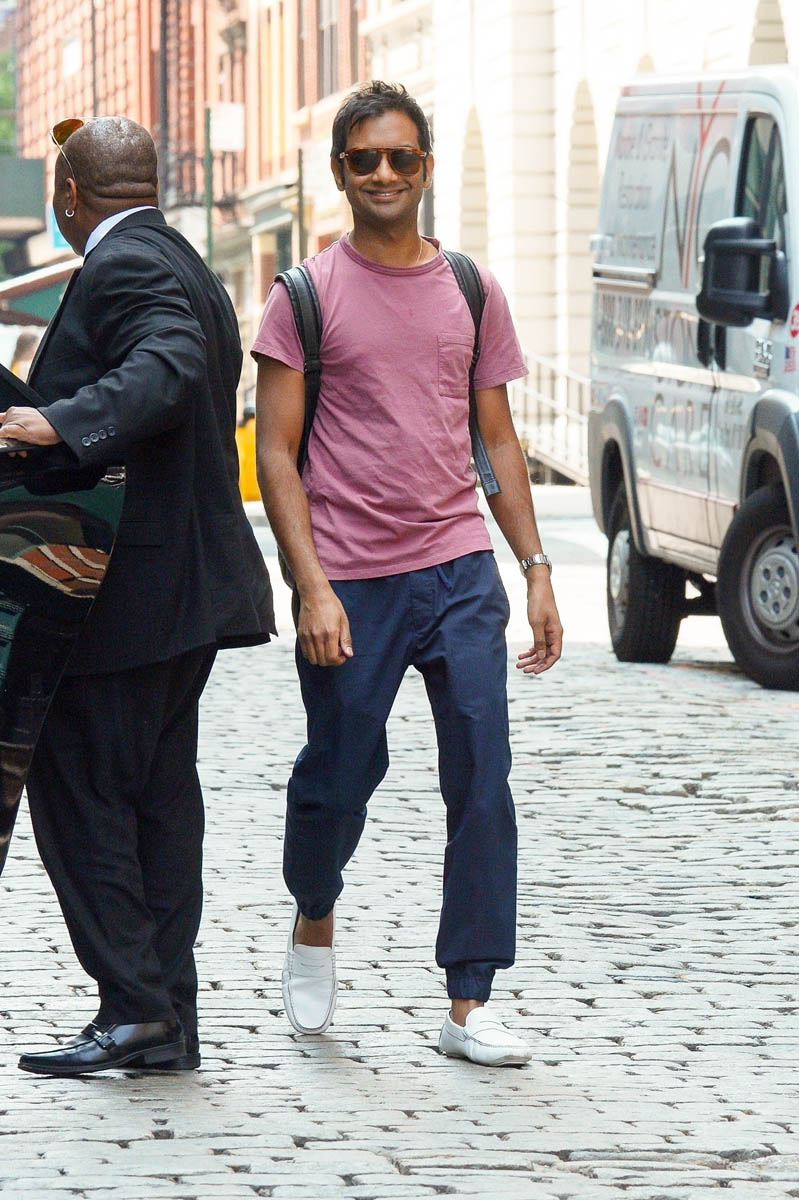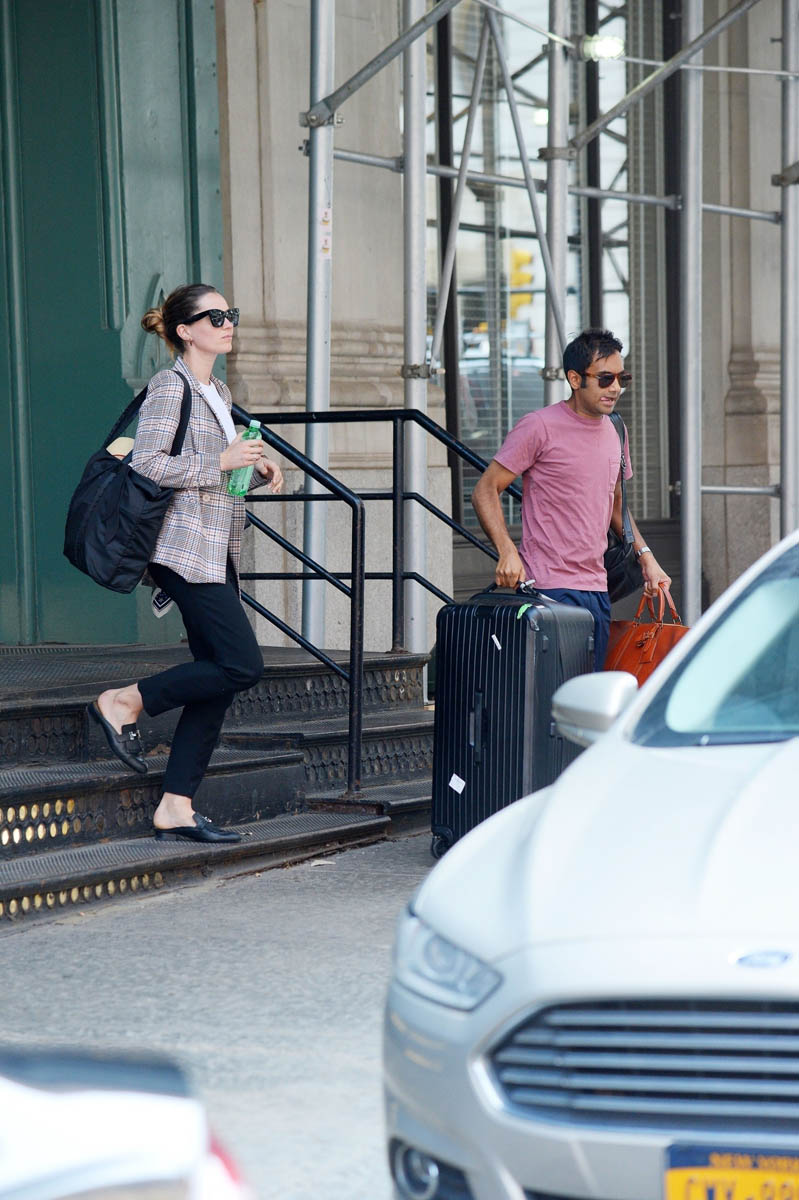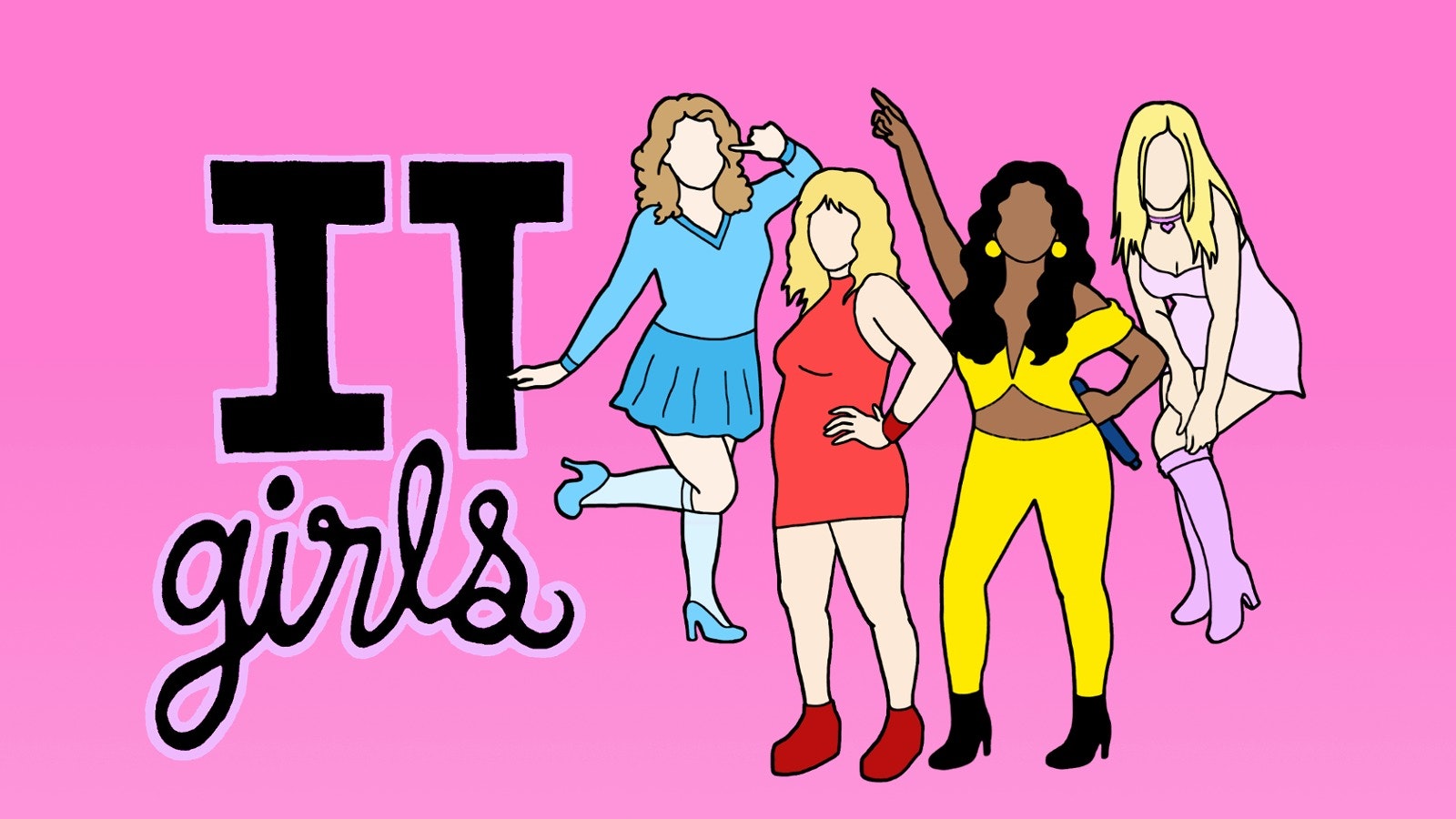Aziz Ansari returns


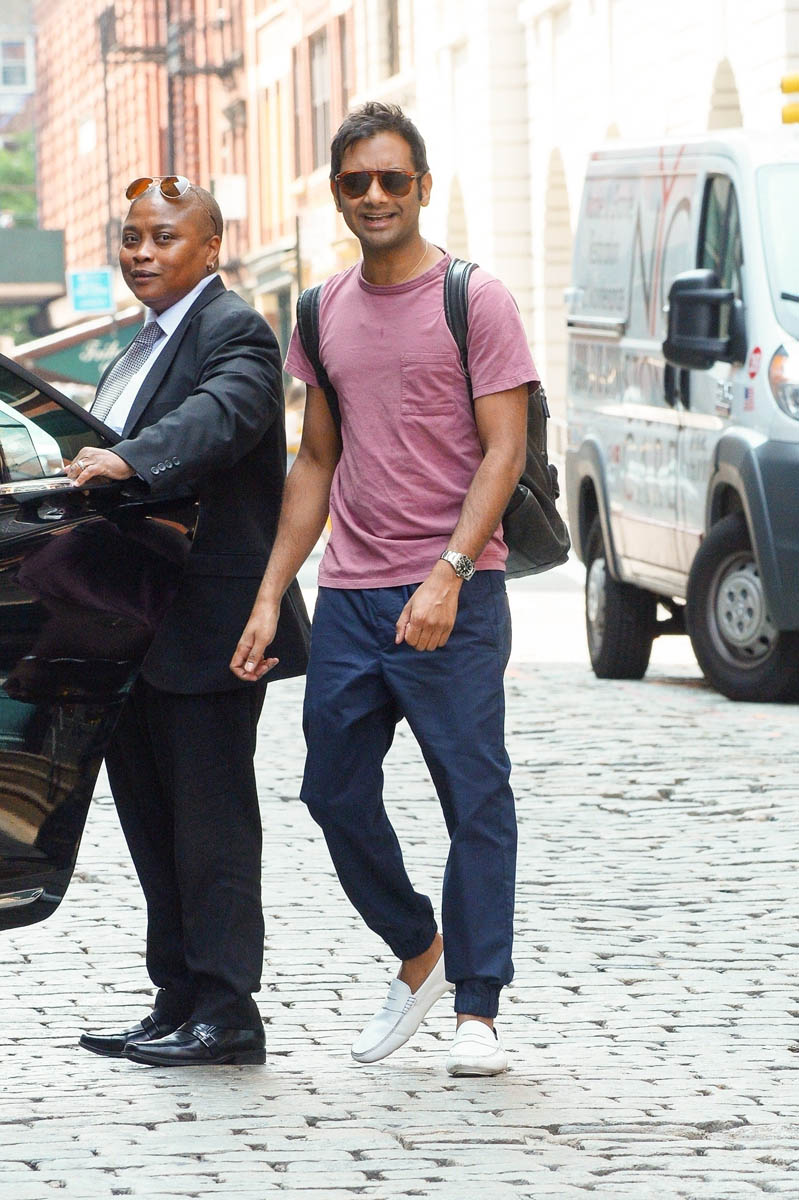
Eighteen months after an allegation of sexual misconduct threatened to ruin his career—not really, of course, because no one except for Harvey Weinstein has been ruined but people are always so worried about the hardships of men—Aziz Ansari returns to television with a new Netflix stand-up special, Right Now. As the title suggests, Ansari is focused on the here and now; it’s a major theme in his set. Compared to his last couple specials, filmed before arena audiences with built sets and tailored suits, Right Now presents a comparatively stripped-down Ansari. He wears jeans and a tee shirt, he’s performing at the Brooklyn Academy of Music, a much smaller venue than the arenas he previously commanded. The special, directed and shot by Spike Jonze, is filmed with warm cinematic grain. The vibe is intimate, even introspective. The message is clear: This is a new, reflective phase for Ansari. He has looked inside himself. He is ready to share.
Ansari begins by directly addressing the fallout of the allegation against him:
“There’s times I felt scared. There’s times I felt humiliated. There’s times I felt embarrassed. And ultimately, I just felt terrible that this person felt this way. […] It’s made not just me but other people more thoughtful, and that’s a good thing.”
Then, after acknowledging the heaviness of the topic, Ansari segues into a bit about white people and Crazy Rich Asians and performative wokeness. His experience is not mentioned again until an oblique reference to his “tricky year”. He concludes his hour-long set by sincerely thanking the audience for continuing to support him, because he saw (briefly) a future in which he would lose his career. But nothing in his set ties back to his opening statement, nothing in his observations about online culture, about political correctness, about the rapid changing of social mores and increasing awareness of long-latent social issues loops back to his own, lived experience with those things. Right Now is hollow. It’s whispering solemnly into the mic about The Serious Thing That Happened and then pretending it didn’t happen. It’s performative.
Ansari’s statement rings particularly false because of the kind of comedian he is. Ansari excels at relating. He built his comedy on commiseration, on not just talking to an audience but relating to them, particularly on the topic of romance. He was the comedy dating maestro—hell, he wrote a whole book about it. And his act was heavy on crowd work as he talked to audience members about their dating and romantic experiences, and he has a real knack for tying it all together, for establishing his theme early and then bringing it home at the end, revealing the common thread in his set that he carefully wove together through all the bits and crowd conversations he performed. And for the last several years of his career, all that insight and ability has been squarely focused on dating and romance. It’s what made the allegation of sexual misconduct so surprising—Aziz was the guy who got it. He understood, until we learned that maybe he didn’t understand any better than the average handsy dude.
This comeback set could have been a searing, Nanette-style reflection on what he learned over the last eighteen months. He could have tied his observations on how fast social mores are changing to finding himself caught in those crosshairs. But he doesn’t. And it sticks out. You can feel the opening presenting itself, you can spot the exact places where he could insert his own experience into the set, but every time, Ansari backs away from it. That makes Right Now feel less than accomplished, because we know Ansari can do better. We have seen him do better. That he doesn’t do better now isn’t really surprising, but it is a letdown. If anyone seemed poised to really take this subject matter on and turn it into something transforming, it was Ansari. But he deflects.
That, at least, is something he has in common with women. We’re masters of deflection. We deflect all day long. We deflect our disappointment and anger so as not to be seen as aggressive or bitchy. We deflect compliments so as not to be thought of as stuck-up. We deflect our emotions so we’re not seen as weak. And we deflect hands. We deflect so many, many hands that reach and poke and demand. Hands that don’t recognize resistance because how could we not want it? We went on this date, we ate the food that he bought, we wore that dress, we leaned in for this kiss. We agreed to the beginning, we must be on board for the ending, too.
We deflect until it becomes a game: touch-roulette, like “Grace” played with Ansari. It’s just a game—a battle of the sexes. Because if it’s not a game, then we have to see it for what it is: touch-roulette is the process of fending off an assault. It’s trying to end something unpleasant before a boundary is crossed that can’t be coped with. Touch me here so that you don’t touch me there, because I can’t handle that, but this is slightly less upsetting to tolerate, so go ahead and squeeze that too hard, I promise not to make a sound that might suggest I am not totally enjoying this because I am f-cking terrified of what you’ll do if you think for even a moment that I don’t want this. We deflect because it minimizes potential problems. And, now, so does Aziz Ansari.
It’s clear from his opening statement Ansari isn’t going to be doing the hard work of expunging his own problems and failings on stage. He says, “I just felt terrible that this person felt this way.” Not, I’m sorry I hurt her. Not, I’m sorry I made her feel bad. Not even plain ole I’m sorry. He felt bad that she felt bad. He’s sorry if she feels that way. Everything Ansari says—and especially what he doesn’t say—is about HIM. None of it is about her. It’s about his humiliation, about his fear for his career. His gratitude that his fans remain. He tells us this experience made him thoughtful. But has he learned anything? Has anyone?

